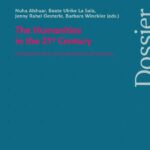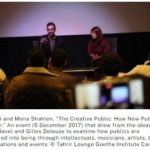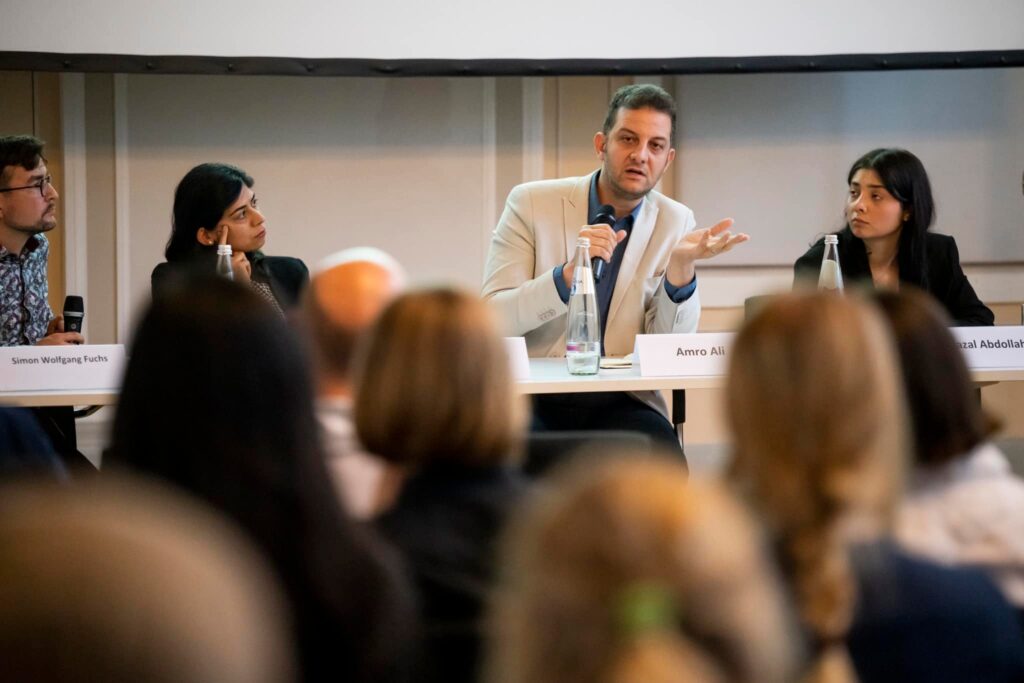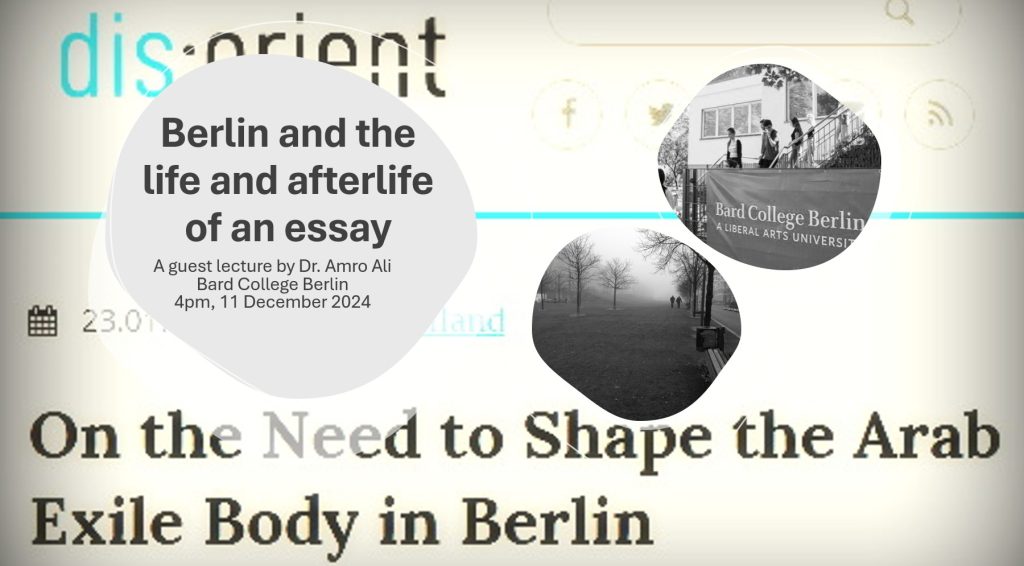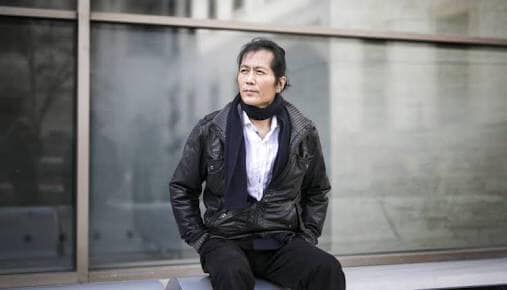
I’m giving this philosophy talk (in Arabic) at AUC Tahrir on 27 April 2019, at 6pm, that will explore technology’s assault on the human condition, employing the works of German-Korean philosopher Byung-Chul Han. This is part of the AUC’s new ‘Bel Arabi Falsafa’ project and the spring series is called ‘Philosophy and Modern Life.’ Entry is free and open to the public.
”The rise of the information age and digital revolution gave hope that immediate access to a plethora of sources, interactive and always visible, was within easy reach. In many respects, this was an encouraging development in places like Egypt, where libraries and access to books were rare or difficult to access for the public. However, it came at a price. In 1996, British psychologist David Lewis coined the term Information Fatigue Syndrome (IFS) after noticing that workers who dealt with vast quantities of information were suffering from a weakening of their analytic capacity, attention deficits, inability to bear responsibility and traits of depression. It was unimaginable that this rare condition at the time would eventually engulf, in various degrees, the entire world. With the inundation of information, boiling matters down to their essence has become an arduous task.
This lecture will employ the works of German-Korean philosopher Byung-Chul Han who argues that on its own, a mass of information generates no truth. It sheds no light into the dark. The more information is set free, the more confusing and ghostly the world becomes. After a certain point, information ceases to be informative. It becomes deformative. Simply having more information and communication does not shed light on the world. Nor does transparency mean clairvoyance. Thinking is underpinned by discernment, discrimination, selection, and even forgetfulness – qualities that are frequently bulldozed in the online world.
However, this is not about fleeing from the digital realm as much as it is to ask the question: How do we reconcile the digital order with the terrestrial order? The German theorist Carl Schmitt celebrated the earth for its solidity which enabled clear demarcations and distinctions in which character is formed. Whereas the digital order equals the “sea,” where “firm lines cannot be engraved”, that is to say, no character. The smooth open spaces of the digital medium are without end, but a better appreciation of the world of shadows with its nooks, corners, crannies, and alleys that not only filter and impede the information pollution and trolls, but allows slowness, reflection, and mediation processes back into the thinking fold and the realm of authenticity.”
“لقد بعث عصر المعلومات والثورة الرقمية الأمل في النفوس بأن عالمًا من الموارد الوفيرة – المرئية منها والتفاعلية – قد أصبح بين أيدينا. وكان ذلك تطورا مشجِّعا من نواحٍ عِدة في دول مثل مصر، حيث كانت المكتبات قليلة وفرصة الجمهور في الحصول على الكتاب نادرة. لكن الثمن كان كبيرا. ففي عام 1996، خرج الإخصائي النفسي البريطاني ديفيد لويس بمصطلح “متلازمة الوهن المعلوماتي” (IFS)، بعد أن استرعى انتباهه أن العاملين الذين يتعاملون مع كم هائل من المعلومات يعانون من ضعف في القدرة التحليلية ونقص في الانتباه، وعدم القدرة على تحمل المسئولية، بالإضافة إلى ظهور أمارات الاكتئاب عليهم. ولم يخطر ببال أحد عندئذٍ أن تلك الحالة النادرة سوف تسري بين البشر في أنحاء العالم كافةً حتى تلتهمهم جميعا ولو بدرجات متفاوتة. ومع الإغراق المعلوماتي، صار تحليل أي مسألة من أجل الوصول إلى جوهرها مهمة شاقة.
الفيلسوف الألماني-الكوري بيونج تشول هان، الذي يؤمن بأن كتلة المعلومات وحدها لا يمكن أن تتولد من بين طياتها الحقيقة؛ فهي لا تشع نورا يبدد الظلام، بل إن كل سيل من المعلومات ينطلق باعثاً معه حالة من التشويش يستحيل معها العالم عالماً للأشباح، وفي لحظة ما ستصبح المعلومات عاجزة عن تنويرنا أو إعلامنا بشيء؛ بل سوف تنتقص مما لدينا من معرفة؛ فالحصول على مزيد من المعلومات، وتحقيق مزيد من التواصل لا يجعل العالم أكثر وضوحا ولا استنارة، ولا الشفافية تعني وضوح الرؤية، حيث أن التفكير يرتكز على الإدراك والملاحظة والتمييز والانتقاء، بل وحتى على النسيان – تلك عمليات يتم تدميرها والإجهاز عليها في عالم الإنترنت.
كما تتناول الندوة فكرة أنه رغم كل ذلك، فالأمر لا يُعد دعوة للهروب من العالم الرقمي، بل دعوة لكي نسأل أنفسنا: كيف لنا أن نحقق التصالح بين النظام الرقمي، والنظام الأرضي؟ لقد عبر العالم الألماني كارل شميدت عن أن عظمة الأرض تكمن في صلابتها، حيث رُسمت الحدود وَوضَحت الفروق، فصنعت ملامح شخصيتها المتفردة، بينما يترامى النظام الرقمي “كبحر بلا شاطئ”، يستحيل فيه “أن تحفر خطًا واحدًا”، أي لا شخصية له على الإطلاق، كما أن الفضاءات الشاسعة الناعمة التي يفتحها الوسط الرقمي أمامنا لانهائية، لكن إذا تيسر لنا أن نتذوق عالم الظلال بأركانه وزواياه وشقوقه المظلمة وأزقته الضيقة، إذن لتمكننا من تنقية المعلومات وصد الملوث منها، وقطع الطريق على الغيلان القابعة فيها، بل ولحظينا ببعض الفرصة للتمهل، والتفكُّر، والتأمل -الشيء الذي سيعيدنا إلى مساحة التفكير وإلى عالم الأصالة.”
Click here for the Facebook event
(This is a modified lecture of one I gave in Goethe Alexandria last November)

